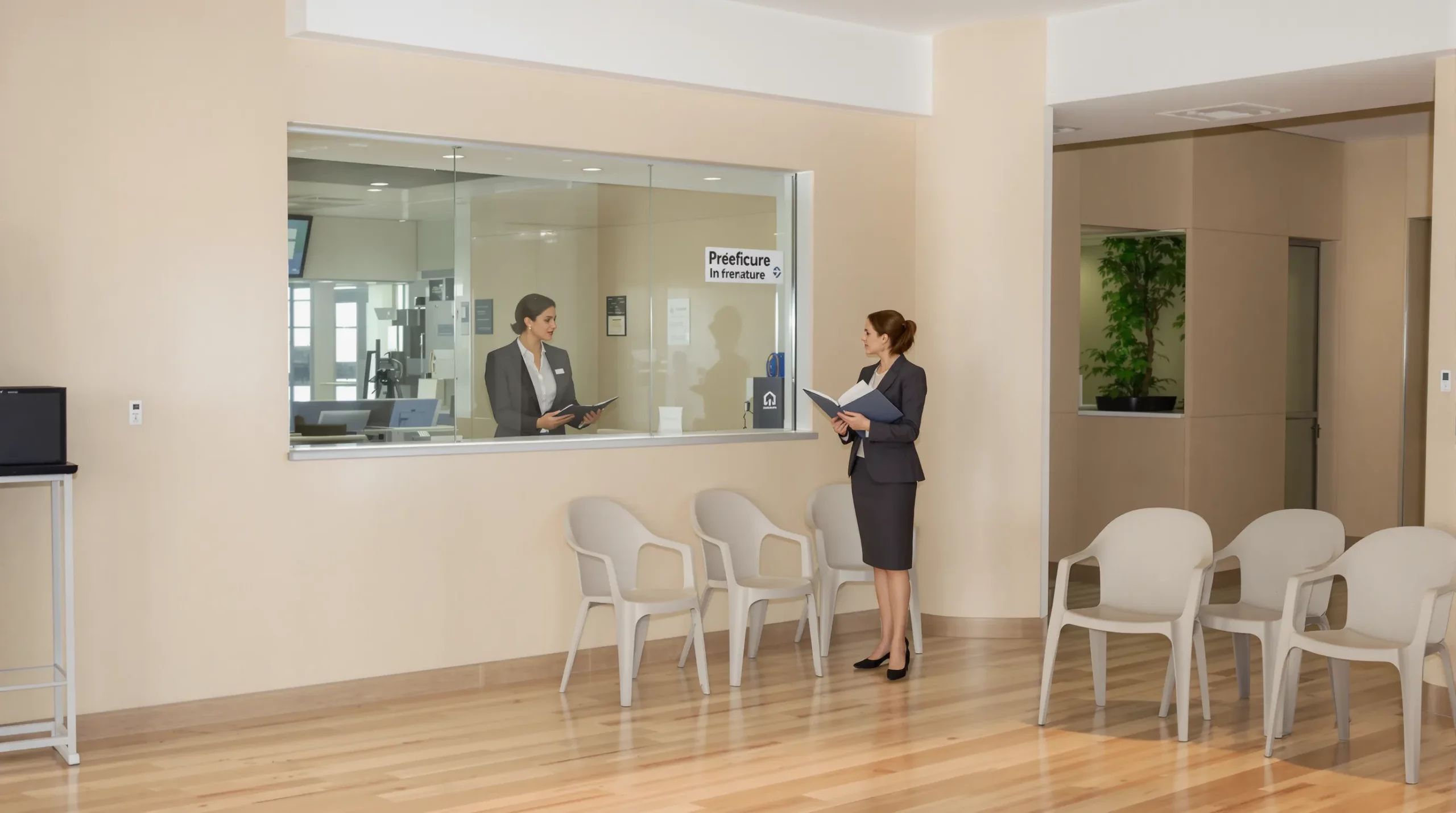How to Obtain a Carte de Séjour for Victims of Domestic Violence

This article deals with sensitive issues of domestic violence. If you are in immediate danger, call the French emergency number 17 (police) or 112 from any phone. For confidential support 24 / 7, contact 3919 – Violences Femmes Info.
Why a specific residence permit exists for victims of domestic violence
France recognises that an abusive partner can use immigration status as a tool of control. To prevent victims from being trapped in violent relationships, Article L.423-6 of the Code de l’entrée et du séjour des étrangers et du droit d’asile (CESEDA) allows prefectures to issue or renew a carte de séjour “vie privée et familiale” when the foreign spouse or partner leaves the household because of violence.
In practice, the measure concerns:
- Foreign nationals married to, PACSed with, or cohabiting with a French citizen or a foreigner holding a residence permit.
- Victims who held (or could have held) a family-based residence card that depends on living with the abusive partner.
According to the French Interior Ministry, more than 4 000 residence permits were granted on this ground in 2024, a figure that has doubled since 2019.

Are you eligible? The legal criteria, simplified
To obtain the permit, you must show both of the following:
-
A family link that previously justified your stay
Examples: spouse of a French citizen, holder of a “vie privée et familiale” card as parent of a French child, partner of an EU national, or beneficiary of family reunification. -
Credible proof of domestic violence
Acceptable evidence includes:- A criminal conviction of the perpetrator (judgment or court order).
- A protection order (ordonnance de protection) issued by a family judge.
- A medical-legal certificate (UMJ) describing injuries plus a police report or complaint (plainte) filed with the gendarmerie/commissariat.
- Sworn statements from shelters, social workers or doctors if criminal proceedings are still pending.
Important: You do not need a final criminal conviction. Prefects must examine all evidence “in concreto” (Council of State, decision n° 463051, 30 Oct 2023).
Which card will you receive?
- First issue: a one-year “vie privée et familiale” carte de séjour authorising you to work.
- Renewal: after one year, you can renew on the same ground without condition of living with the partner.
- 10-year carte de résident: after 3 years of stable presence or earlier if you meet other criteria (e.g. parent of a French minor), you may request the long-term card.
Step-by-step application guide (2025 procedures)
-
Gather the core documents
- Passport or valid travel document
- Birth certificate (with translation if not in French)
- Proof of entry and current address (utility bill, shelter attestation)
- All evidence of violence (see above)
- Proof of previous family link (marriage certificate, PACS, joint tax return, children’s birth certificates)
-
Book a prefecture appointment
- Departments using the ANEF online portal: create an account on administration-etrangers-en-france.
- Others: email or call the dedicated “accueil vulnérabilités” desk. If slots are full, send your file by registered mail before your current titre expires; the postmark preserves your rights (Article R.431-2 CESEDA).
-
File the application
- Submit originals and copies.
- Ask for a récépissé (receipt) valid for six months and authorising work.
-
Interview and investigation
- Prefecture agents may interview you or request additional documents.
- They cannot invite the violent partner to the appointment (circular NOR INTV2100128J, 9 Nov 2021).
- Average processing time observed in 2024: 2–5 months.
-
Collect your card
- Pay the tax stamp: 225 € for first issue, 75 € for renewal if you already hold the “vie privée et familiale” card.
- Activate the electronic chip with your fingerprints.
What if you are undocumented or face an OQTF?
Victims without any valid titre or who received an obligation de quitter le territoire français (OQTF) can still rely on Article L. 423-6. Submit the same evidence plus an explanation of why the violence prevented timely renewal. Prefectures must suspend removal until the claim is assessed (CE, 5 July 2022, n° 458921).
If the prefecture refuses or confirms the OQTF, you have 30 days to challenge the decision in the administrative court. ImmiFrance partners with specialised lawyers to prepare emergency appeals (référé-suspension), often obtaining a stay on deportation within 48 hours.
Rights that come with the card
- Free access to the labour market (no additional work permit).
- Affiliation to French social security and Protection Universelle Maladie (PUMA).
- Eligibility for housing aid (CAF), vocational training, and professional retraining programs such as France Travail’s “Femme victime de violences” pathway.
- After five years of stable legal stay (including the years on the violence card), you may apply for French citizenship by naturalisation.

Common pitfalls (and how to avoid them)
- Withdrawing your complaint under pressure: The prefect can still grant the card, but your file will be weaker. If you fear retaliation, request a protection order before the family court (Juge aux affaires familiales).
- Missing translated documents: Only assermenté (sworn) translations are accepted. Budget 25–35 € per page.
- Expired passport: Some embassies refuse renewals when you separate. Prefectures can issue a card on titre de voyage grounds or accept a consular attestation.
- No address: Ask the local Centre Communal d’Action Sociale (CCAS) for a domiciliation certificate so you can receive official letters.
How ImmiFrance supports survivors
- Confidential eligibility check – schedule a free 15-minute call; no partner’s presence needed.
- Evidence building – in partnership with social workers and doctors, we compile the strongest possible dossier.
- Prefecture appointment booking – our team knows the hidden online portals for each department and can secure priority slots.
- Legal representation – if the prefecture refuses or issues an OQTF, we connect you with a barrister who has a >90 % success rate in suspension appeals.
- Long-term planning – once you are safe, we assist with renewals, change of status, and eventual citizenship applications.
Explore our dedicated service page: Residence Permit Assistance.
Frequently Asked Questions (FAQ)
Can men or LGBTQ+ partners apply for the domestic violence card?
Yes. The law is gender-neutral and applies to any intimate partner violence within a recognised relationship.
I only have text messages and photos of bruises. Is that enough?
While a protection order or police report strengthens your case, consistent digital evidence plus a medical certificate can suffice. ImmiFrance will help you document and date each item properly.
What happens if my abusive spouse is also undocumented?
Your right to the card is assessed independently of the perpetrator’s status. His or her removal will not affect your permit.
How long before I can obtain the 10-year resident card?
Usually after three consecutive one-year cards, provided you meet integration and language requirements (A2 level French). Accelerated options exist if you are the parent of a French minor.
Does the card get cancelled if I enter a new relationship?
No. The permit is no longer tied to the former partner. Future changes in your private life do not impact its validity.
Ready to regain control of your life in France?
No one should have to choose between personal safety and the right to stay in the country. Book a confidential consultation with an ImmiFrance advisor today and take the first step toward legal security and independence.
